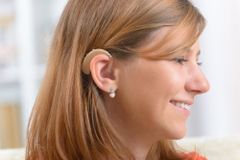How Genetics Affect Hearing Loss

Along with environmental factors, genetics can play a role in hearing loss. When genes behave in unexpected ways, they can impact the formation of the ears. While an audiologist can explain the hereditary factors involved in your hearing loss in greater detail, this guide goes over the basics.
How Gene Mutations Cause Hearing Loss
Genes inform everything about you, from your eye color to your height. Mutated or altered genes cause illnesses or disorders, including hearing loss, when inherited from parents. Some disorders only require one copy, while others require abnormal genes to be passed along from both parents. Certain abnormal genes target ear development directly, such as the GJB2 gene.
Getting screened for GJB2 gene mutations is essential if other people in your family experience congenital hearing loss. For hearing loss to occur, a person must inherit abnormal copies of this gene from both parents. You might be a carrier and not realize it because you only possess one copy.
Genetic testing is also beneficial for people already experiencing hearing loss, as it may determine the underlying cause.
Types of Inherited Hearing Loss
 Genetic variations can cause the cochlea to malfunction, which prevents the brain from picking up sound waves. Genetic variations can also lead to hereditary disorders linked to hearing loss, including:
Genetic variations can cause the cochlea to malfunction, which prevents the brain from picking up sound waves. Genetic variations can also lead to hereditary disorders linked to hearing loss, including:
Pendred Syndrome
Pendred syndrome causes physical changes to the bones in the middle ear that are responsible for sending sound waves to the cochlea. This disorder causes hearing loss from birth and may also enlarge the thyroid gland. Balance problems can occur if the structures in the inner ear are abnormally shaped.
Otosclerosis
Otosclerosis also impacts the bones within the ear. Symptoms may not present until young adulthood, at which point you might experience tinnitus and balance problems. Unlike other types of hearing loss, people with otosclerosis often hear better in noisy environments because the disorder has a greater impact on lower frequencies.
Usher Syndrome
The majority of people with Usher syndrome will experience one of two types. Type 1 involves almost complete deafness from birth, balance problems, and vision issues. With type 2, hearing loss is present at birth, but it’s usually less severe. Those with the condition may also experience problems with night vision as they grow older.
Whether you’re experiencing issues with your hearing or want to discuss your family history, consult the audiologists at R.W. Petruso Hearing & Audiology Center in Hermitage, PA. They’ve helped locals with hearing deficiencies since 1973. Along with hearing tests, they offer a wide range of treatments, including hearing aids and accessories. Visit their website for more information on their services. You can also schedule an appointment with an audiologist by calling (724) 981-5930 today.
About the Business
Have a question? Ask the experts!
Send your question

